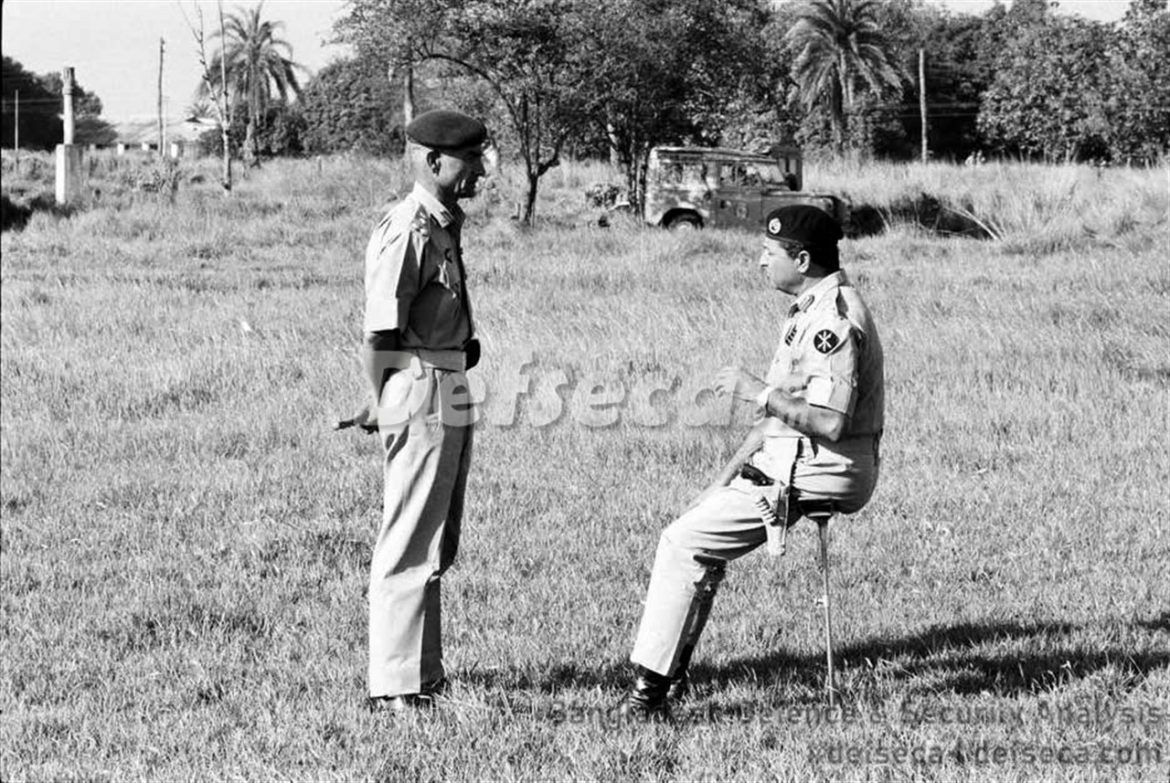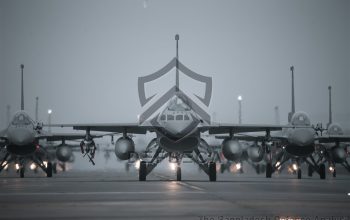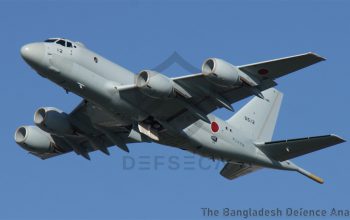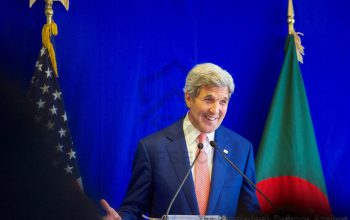Immediately after the 1971 war loss the Pakistani state established a war enquiry commission to assess Pakistan’s political and military involvement in East Pakistan from 1947 to 1971.
It is referred to as the Hamoodur Rahman Commission, named after the Bengali Chief Justice of Pakistan who led the enquiry.
The final report was very lengthy and provided an analysis based on extensive interviews and testimonies of the key persons involved in the East Pakistan debacle.
The report constituted to be a full and complete account of the circumstances surrounding the atrocities and the 1971 war including the actions of the Commander of the Eastern Military Command, which surrendered to the Bangladesh-India joint forces at the end of the war.
It was very critical of Pakistan’s military interference, the misconduct of its politicians as well as intelligence failures of the ISI and FIA.
Originally 12-copies of the report were printed however all but one was destroyed possibly by Pakistani military officials fearing reprisals.
The commission disputed the claim by Bangladeshi authorities that 3 million Bengali’s were killed by the Pakistani military and 200,000 women were raped. The commission put the casualty figures as low as 26,000 civilian casualties but this was not verified thoroughly and seems based on conspiracy and tales from the interviewed persons, who were responsible the 1971 debacle in the first place.
The 3 million figure often written in Bangladeshi and international press was adopted to a mistake in interpreting numbers “lakhs” and “crores”. In fact Bangladesh originally assumed the death toll to be 300,000 after collating information from different administrative centres and Police stations.
Independent figures however note that the figure were close to 269,000 people killed (both Bengali and West Pakistanis. The report dealt with the political background, international relations, military aspects of the events of in 1971, surrender in East Pakistan and the aspects of morality.
Both the primary and supplementary reports found that the Pakistan Army carried out senseless acts of wanton arson, killings in the countryside, planned killings of Bengali intellectuals and professionals (including burying them in mass graves), killing of Bengali officers and soldiers from the Pakistan Army on false pretenses, killing East Pakistani civilian officers, businessmen and industrialists, raping a large number of East Pakistani women as a deliberate act of revenge, retaliation and torture and deliberate killing of members of the Hindu minority
The report lambasted Pakistani Army generals for prematurely surrendering and the military’s continued involvement in running the government after 1958 as one of the major reasons for the corruption and ineffectiveness of senior officers.
The report maintained that: “Even responsible service officers have asserted before us that because of corruption resulting from such involvement, the lust for wine and women and greed for lands and houses, a large number of senior army officers, particularly those occupying the highest positions, had lost not only their will to fight but also their professional competence.”
The report said Pakistan’s military ruler at the time, General Yahya Khan, who stepped down after Pakistan’s defeat in December 1971, “permitted and even instigated” the surrender, and it recommended that he be publicly tried along with other senior military colleagues.
The report accused General Yahya Khan, of being a womanizer and an alcoholic.
According to the report “Firm and proper action would not only satisfy the nation’s demand for punishment where it is deserved, but would also ensure against any future recurrence of the kind of shameful conduct displayed during the 1971 war”.
The report was also critical about operational matters pertaining to the Western theatre and the misconduct of senior generals there.
It called for reforming the Pakistan armed forces chain of command for integrated operations through the mechanism of the Joint Chiefs of Staff Committee (JCSC) headquarted at the Ministry of Defence (MoD).
On 23 October 1974 Chief Justice Hamoodur Rahman submitted the report to the then Prime Minister Zulfikar Ali Bhutto. Prime Minister Bhutto hurriedly classified the report concerned that it would demoralise the Pakistan military further and may trigger unrest within the organisation.
In 1976 the Chief Justice asked Bhutto about the whereabouts of the report to which he replied as being “missing, lost, stolen and was nowhere to be found”.
Several more attempts were made by the Pakistani press to unearth the report however none could succeed in finding it.
In October 2000 President Pervez Musharref commented it would be unfair for the military to be tried for the 1971 war atrocities. In December that year he published an official supplementary report, which differs from the original report.
No action was ever taken against key persons on the basis of the original report. Many of the perpetrators of the acts died including notorious culprits such as Tikka Khan, AAK Niazi, Rao Farman Ali and Yahya Khan.
Trials of Gul Hassan, Abdul Rahim Khan and Muzaffar Hassan were the only trials ever to be held by the Judge Advocate General in the light of the Hamoodur Rahman Commission in 1972.
Bangladesh sought the original report however to this day Pakistan failed to provide it.
Later the Bangladesh government held international war crimes trials hanging many pro-Pakistani war criminals.
The war crimes trials were condemned by Pakistan officially and led to relations between the two countries further deteriorating.
At present Bangladesh and Pakistan are in talks to repair relations between the two countries however without settling the issue of the 1971 war it would be extremely difficult for either side to normalise relations.




